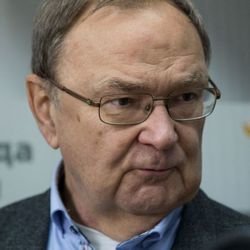Petrol prices in Tatarstan update record highs
Fuel prices have gone up in Volga cities since the beginning of the year. According to Realnoe Vremya’s analytic staff, RON92 and RON95 grades have become more expensive by 25 and 28 kopeks on average respectively. Tatarstan has also seen a record low, though our republic has been the last to raise prices in the area. Now one has to pay record 42,84 rubles for a litre of RON92 in Kazan and 46,36 rubles for the same amount of RON95.
Record rise in petrol price
Retail fuel prices already resumed their growth in the first month of 2021. According to Realnoe Vremya’s analytic staff’s own research, average RON92 and RON95 petrol prices in Volga cities have increased by 25 and 28 kopeks respectively. The highest prices for RON92 are found in Cheboksary (43,67 rub/l) and Ufa (43,53 rub/l). The costliest RON95 is in Yoshkar-Ola (46,90 rub/l) and the capital of the Chuvash Republic (46,73 rub/l).
The fuel has gone up in price literally in all regions of the Volga area in several stages. Tatarstan has been one of the last to raise the prices. At the weekend, petrol stations of the republic have updated record highs, and now one has to pay 42,84 rubles for a litre of RON92 and 46,36 rubles for the same amount of RON95.
Has gas cheapened due to surplus?
While car fans using liquefied petroleum gas (LPG), in contrast, can save money. Average gas prices have decreased by 53 kopeks in the last month. So the price for gas in Kazan has reduced by a ruble, the price in Nizhnekamsk and Naberezhnye Chelny has by 1,5 rubles.
“There has been some decrease in the price for liquefied petroleum gas due to its slight overproduction. The surplus in the market made the price decrease a bit,” a partner of RusEnergy consultancy, oil and gas analyst Mikhail Krutikhin explained to Realnoe Vremya.
However, the year-on-year dynamics of LPG prices look different. So compared to late January 2020, gas showed the greatest growth among all types of fuel in the Volga region and has increased by 10,1%, from 21,44 to 23,6 rubles per litre. Over the year, RON92 has grown by 2,6%, while RON95 has by 3,8%. A litre of winter fuel has turned out to be the most inert from a perspective of inflation and has changed only by 2,1%.
“This sheer rip-off isn’t the fault of oil companies”
Growth of fuel prices shouldn’t exceed inflation, according to an agreement of the government with oil companies. The Bank of Russia claims that annual inflation in the first quarter of 2021 will total around 5%. Then, if the influence of one-time factors relatively disappears, it will reduce and go back to 4% in the middle of the year.
The rise in the fuel price in Russia is conditioned by both external and internal factors. We can cite state regulation of prices by attenuation as internal factors. An attenuating mechanism impeding prices from rising and falling in petrol stations and keeping them at a stable level has been in force in the country since early 2019 in oil refining taxation.
Mikhail Krutikhin thinks that precisely this mechanism is the main reason why retail prices have grown:

We can consider stock rates in the wholesale market of commodities as domestic factors impacting retail prices.
For instance, at Saint Petersburg International Mercantile Exchange, wholesale prices have shown a rapid rise in the last month. Liquefied gas has demonstrated the biggest fuel dynamics in a month — over 30%. RON92 has increased by almost 9% in a month: from 47,616 rubles per tonne (as of 24.12.2020) to 51,778 rubles per tonne as of 28.01.2021.
Macroeconomic and geopolitical factors can be supposed as external influencing world oil prices as well as global demand for fuel resources, market experts assume.